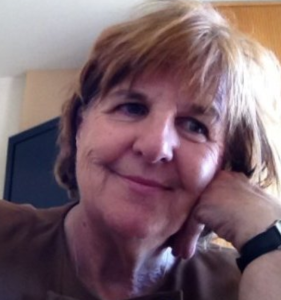Recognising general practice as a specialty would raise its profile and acknowledge the expertise it requires
 For many years general practitioners have been arguing that they are specialists in general practice/family medicine and want to be recognised as such. After all, they have five years of postgraduate training under their belt, spread between hospital training posts and time in general practice; they achieve a certificate of completion of training; and they have to pass a rigorous exam when gaining membership of the Royal College of General Practitioners (RCGP), which has written and oral components, as well as a clinical skills assessment.
For many years general practitioners have been arguing that they are specialists in general practice/family medicine and want to be recognised as such. After all, they have five years of postgraduate training under their belt, spread between hospital training posts and time in general practice; they achieve a certificate of completion of training; and they have to pass a rigorous exam when gaining membership of the Royal College of General Practitioners (RCGP), which has written and oral components, as well as a clinical skills assessment.
Moreover, they see their European colleagues being recognised as specialists in family medicine. Twenty four out of 28 EU states recognise general practice as a specialty. The UK stands with Austria, Belgium, and Italy as the only European countries that don’t recognise their expert, highly qualified, and vastly experienced GPs as specialists in their practice of medicine. In fact, European GPs are surprised to find that the UK, which is widely regarded as the founder of modern general practice, does not acknowledge that its own GPs are expert specialists.
It is not just in Europe that general practice is regarded as a specialty. The United States, Canada, and Australia also recognise the speciality. A Canadian doctor at a meeting once told me that in his country hospital consultants were talked of as “doctors of restricted scope of practice,” whereas general practitioners were “doctors of unrestricted scope of practice.”
The General Medical Council (GMC), despite having two registers, one for specialists and one for general practitioners, still lists general practice as a speciality on its website. Universities and medical schools have chairs of general practice, and there are relevant professors of the discipline.
If it looks like a duck, swims like a duck, and quacks like a duck, then it is a duck. General practice looks like a specialty, behaves like a specialty, has all the attributes of a specialty, and is a specialty in other developed countries—it should be recognised as a specialty in the UK.
This was the basis of a statement from UEMO (the European Union of General Practitioners) at their Spring General Assembly last year when it asked its member states to coordinate their efforts to get the specialty recognised throughout Europe. This was followed by a vote by the council of the RCGP, which agreed with this objective. The June 2016 annual representative meeting of the British Medical Association (BMA) unanimously passed a motion that the specialty should be recognised and this—after a discussion between the BMA’s General Practitioners Committee—culminated in a joint letter by the four nation chairs of the BMA and the RCGP to the General Medical Council arguing that the specialty of general practice/family medicine should be included in the specialist register.
The chief executive of the GMC replied in January 2017 acknowledging the justice of this claim, but observing that in order to have one specialist register, the Medical Act would need to be amended and this would require parliamentary legislation.
In the meantime, general practitioners are working through European medical organisations to get the specialty recognised throughout Europe. UEMO, CPME (Standing Committee of European Doctors), EJD (European Junior Doctors), and UEMS (the European Union of Medical Specialists) have issued a joint statement to this effect, asking for the amendment of the EU Directive that ensures the recognition of qualifications, so that family medicine is recognised as a specialty.
It is widely acknowledged that general practice is in crisis, with overworked and underfunded GPs who are demoralised and who are leaving either through early retirement or by moving abroad. We are failing to attract young doctors into the profession because they see it as having less status than hospital posts and as a career with few rewards for the risk management skills it demands.
Recognising general practice as a specialty would raise its profile among junior doctors, confer long overdue status on a beleaguered profession, and acknowledge the skills and expertise needed to deal with patients with undifferentiated illnesses or multiple morbidities.
GPs have a long and rigorous training path to become specialists in general practice/family medicine. The fact that they are not recognised as specialists is an anachronistic anomaly, which the government would do well to acknowledge. It is within the government’s power to correct this and it is a measure that would give fresh heart to the UK’s hard pressed GPs.
Mary McCarthy is a GP in Shrewsbury. She is a local medical committee member (and former chair), and the BMA General Practitioners Committee representative for Shropshire, North Staffs, and South Staffs. She has represented the BMA on UEMO for a few years and was elected as vice president and board member eight months ago.
Competing interests: The author has no further relevant interests to declare.
